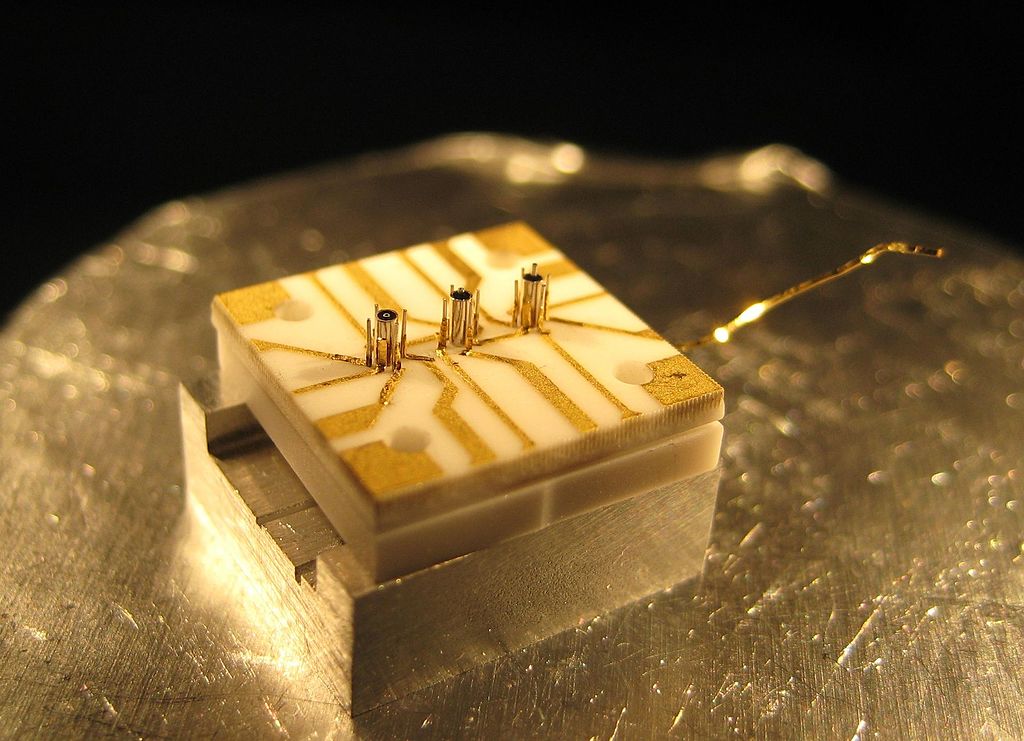Beginning in 2023, I have been part of a team of researchers investigationg how Australian industry sectors were preparing for the introduction of second-generation quantum technologies: quantum communications, quantum computing, and quantum sensing. This work began with a survey of the literature to identify the potential use cases for these technologies. This survey has now been released (Baruwal Chhetri et al., 2024). We also interviewed representatives of Australian industry sectors for their perspective, and are working on a wider survey of Australian industries on their awareness and preparations for quantum technologies.
The official project page can be found here: Understanding Quantum Readiness across Australian Industry Sectors (CSIRO).
As a complement to this project, I co-authored a paper investigating whether the unique characteristics of quantum computing justifies a new sub-field of quantum computing ethics (Coates et al., 2025).
References
2025
-
AI and quantum computing ethics- same but different? Towards a new sub-field of computing ethics
Rebecca Coates, David Douglas, and Manolo Per
Quantum Science and Technology, May 2025
Publisher: IOP Publishing
As quantum computing development advances closer toward achieving fault-tolerant error-corrected realisation, debates on applications, impacts, risks, and benefits of quantum computing are timely and due. While there is awareness of the potential power and complexity of quantum computers, there has been relatively little attention on the social impacts and ethical implications of this technology. In grappling with the social impacts of quantum computing, some stakeholders have turned to applied ethics, specifically (classical) computer and Artificial Intelligence (AI) ethics, for guidance. While computer and AI ethics are useful starting points for evaluating the ethical issues posed by quantum computing, uncritically applying existing sets of ethical principles risks overlooking how quantum computing differs from these technologies. We argue that borrowing of ethical principles and guidelines from AI and computing is inappropriate for several reasons: (1) quantum computing, classical computing, and AI are different technologies with significant material differences; (2) unlike AI and classical computers which have become established, quantum computing is an emerging technology, which has implications on the levels of accessibility and immediate impact in society; and (3) there are significant differences in the way AI and quantum computing have been developed and by whom. We also briefly summarise some of the unique risks and societ al impacts posed by quantum computing. We posit that these reasons support the argument for a new sub-field of quantum computing ethics, which would allow a relevant scholarship to develop and provide guidance as quantum computing technology continues to mature.
2024
-
Mapping Australia’s Quantum Landscape: Potential Applications Across Industry Sectors
Mohan Baruwal Chhetri, Rebecca Coates, Yue Haung, Lihong Tang, David Douglas, and Gabi Skoff
2024
In preparing for the future of quantum technologies, Australia’s National Quantum Strategy envisions a trusted, ethical, and inclusive quantum ecosystem that will modernise the economy, enhance societal well-being, support national interests, and create new jobs. This study contributes to that vision by identifying potential quantum applications across Australian industries. Through an extensive literature review – encompassing government reports, market analyses, academic publications, and insights from the quantum industry – this study provides a comprehensive snapshot of potential use cases for quantum technologies across Australia’s economic landscape. This initial analysis serves as a foundational step in assessing quantum readiness across Australian industries. By identifying promising quantum applications and their potential impact, it aims to inform strategic planning for quantum readiness, guiding key stakeholders within the Australian Quantum Ecosystem, including government, quantum technology end-users, and the quantum technology developers.
